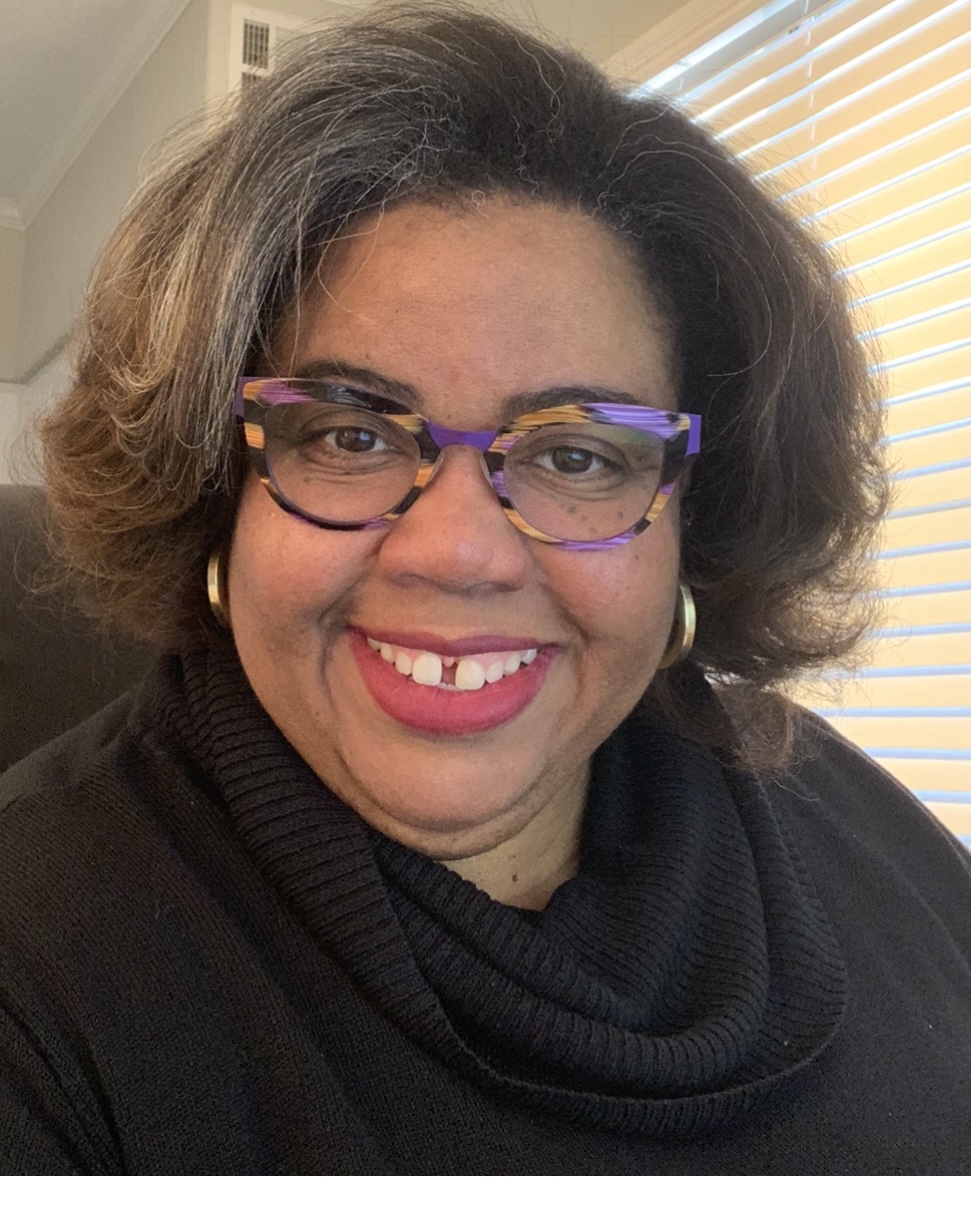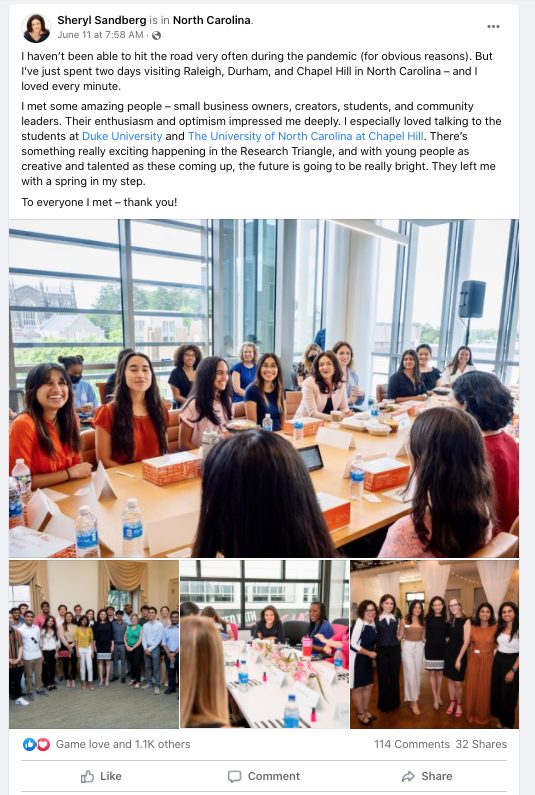It’s a good thing Facebook posts aren’t limited to the 280 characters on Twitter because it took Meta Chief Operating Officer Sheryl Sandberg 8,489 characters – 1,528 words – to announce her resignation. The length of her post, and the comments it generated, illustrate the complexity of Sandberg’s legacy after 14 years with the tech giant.
Her work has come under intense scrutiny and criticism, the latest being allegedly using corporate resources for personal use. Criticism aside, at least one aspect of Sandberg’s career has received accolades: the advice she has given women and minorities to aspire to leadership roles in the tech industry. Women in all industries, including business journalism, can glean several key lessons from Sandberg’s professional and personal life.
A recent salary survey conducted by the Donald W. Reynolds National Center for Business Journalism revealed that more than half of the respondents identified as female (53%), but the median salary of women still woefully lagged behind their male colleagues. The journalism industry is not unique in this aspect: in the tech industry, disparities are even more glaring between men and women. According to a 2020 report completed by Accenture and Girls Who Code, only 27% of computing jobs in the country are held by women and Facebook reports that 75.9% of its tech jobs are held by men.
“You can’t be what you can’t see,” said Lucia Hicks-Williams, Chief Operating Officer for AnitaB.org – a global organization for women technologists. “I have to applaud the indelible mark [Sandberg] made in the tech industry.
Representation and recruitment efforts
Jorjeta Jetcheva, an assistant professor of computer engineering at San Jose State University, explained why it was necessary for Sandberg and other women to vocalize their support of aspiring tech employees.
“‘People like me cannot succeed in an industry/job like this … if people like me were good at this, then there would be more of us in that job,’” she said by offering an illustration of the mindset of underrepresented communities. “Nobody wants to be in an environment where nobody looks like them or has a background like them.”
Sandberg’s book “Lean In” opened the door for more women to share the unwritten rules and strategies of the industry. Jill Finlayson, director of Expanding Diversity and Gender Equity in Tech Initiative at the University of California (Edge in Tech), said Sandberg’s book offered “shared experiences that they weren’t alone.”
The book brought about support groups for women. Women and underrepresented groups learned how to manage the tech industry’s hostile environment. The tech world, Finlayson said, has an archetype of what its leaders look like and those not fitting that description could find themselves in a hostile work atmosphere.
“Women often have to do better than their counterparts. They had to be competent to reach the ranks that they reach,” Finlayson said. “Having representation is absolutely key. People need to see people like themselves.”
Some students may aspire to work for a company like Google but have little help in reaching certain goals. Hicks-Williams, for example, said she has tutored students in math and science to prevent students from feeling like successfully completing a class is impossible.
“Nothing is impossible,” Hicks-Williams said. “Even though there are challenges, there are great opportunities. Don’t turn back. Don’t give up. Find somebody to help you.”
Jetcheva echoed Hicks-Williams’ sentiments. She said students aspiring to jobs in the tech industry need to hear certain messages. They need to be told to believe in themselves. They need to not struggle on their own. They need to hear recommendations to create a support network. They also need to seek mentors and mentor others, she said.
“Underrepresented communities do not see themselves represented in tech,” she said. “This makes students feel like they do not belong.”
Is it a glass ceiling or a glass cliff?
Within days of Sandberg’s resignation, the Wall Street Journal announced she was under investigation by Meta attorneys for using corporate resources for personal use.
The investigation, the story said, goes back as many as six years. It is looking into whether Facebook employees were used to “support her foundation – Lean In – which advocates for women in the workplace, as well as the writing and promotion of her second book ‘Option B: Facing Adversity, Building Resilience, and Finding Joy.’ “ The article added that the investigation included the possibility that Sandberg used corporate resources to plan her upcoming wedding.
While Sandberg never cited a reason for her resignation, The Wall Street Journal reported that friends and co-workers of the tech veteran said that she “decided to step down because she was burned-out and weary of continuing her role as a ‘punching bag’ for Meta’s critics.”
That mindset has been shared by female colleagues who have reached the C-suite. One such colleague was Marissa Mayer, former CEO at Yahoo who worked with Sandberg at Google.
Mayer broke the glass ceiling when she became CEO, but she also became acquainted with another glass structure: the glass cliff, where women or minorities reach a leadership position when the risk of failure is high.
Criticism of Mayer was so intense that “Quibb,” a professional network on news and analysis, wrote a story in May 2016 titled “Stop pretending she had a chance, we all know Mayer was doomed.”
In the article, Hightail Chief Operating Officer Mike Trigg said: “It was in fact a losing battle from the beginning – or one where maintaining the status quote should actually be considered a major success rather than a failure. Silicon Valley bravado and false courage are also to blame for the pedestal that many have placed Mayer upon, only now to chime in with criticism as she’s shown to have not met unnamed expectations.”
While the investigation is one of Sandberg’s albatrosses, there are others. She was criticized for offering women impractical advice. Her book “Lean In” was accused of putting the onus on women to fix problems, according to Finlayson. Plus, many of her experiences were not universal, critics say.
During a book tour, The Guardian quoted former first lady Michelle Obama as saying, “That whole, ‘So you can have it all.’ Nope, not at the same time. That’s a lie. And it’s not always enough to lean in, because that shit doesn’t work all the time.”
Hicks-Williams admitted that Sandberg’s actions will likely “continue to be criticized.”
Women who don’t show positive examples for leadership while in executive positions place a stigma on gender, Finlayson says. Take for example, Elizabeth Holmes. Holmes was the founder of Theranos, a biotechnology company that she grew to a value of $9 billion. Huge flaws were found in the technology which led Holmes to be found guilty on three counts of wire fraud and a count of conspiracy.
Finlayson said women leaders are often found guilty by association. The mindset of others is, “How do we know you’re not another Elizabeth Holmes?”
“When people’s minds penalize/generalize the many due to the one, there are huge detrimental impacts,” Finlayson added.
Displaying one’s authentic self
Despite the microscope, Sandberg finds herself under in her last days with Meta, women who have followed her career admit that she has made a name for herself by mentoring in authentic ways.
Scholars have called her impact the “Sandberg effect” – where young women can see the Chief Operating Officer position as attainable and Sandberg is showing how she gets the credit at work.
“Zuck [Meta Founder Mark Zuckerberg] may have founded Facebook, but Sheryl Sandberg monetized it,” NPR said.
In addition to the notoriety of being COO, Sandberg has been credited with bringing her whole self to the workplace. Hicks-Williams recalls the May 5, 2015 post where Sandberg was “poignant and vulnerable” in discussing the death of her husband.
“It really exposed some of the intersections at which she found herself, which I resonated with completely,” Hicks-Williams said. “She spoke about her faith and her ethnicity, her gender and her work-life choices. She talked about the tragedy in the context of work and what it was like going back to work. And for me, that was just a notice to the industry that we, as women, intended to show up as our authentic selves and it was just an amazing thing.”
Aspiring to belong in an inclusive environment
AnitaB.org completed a survey in 2021 where 1,902 people shared their experiences in the tech industry. According to the figures, 93.4% had experienced discrimination in tech while 100% of those surveyed had experienced harassment.
“Where do you get a survey that says 100% of anything happened?” asked Hicks-Williams. “That is a structural impediment that is just ridiculous.”
Experts reveal that there are several structural barriers preventing more women and minorities from coming into technology. Finlayson said there needs to be equitable hiring, equitable evaluation and equitable advancement. She added that there is progress being made to make the tech industry more equitable. She, however, advocates for additional research in order to improve.
“You can’t fix what you don’t measure,” she said.
In addition to measuring current workplaces, the overall goal of the workplace needs to be inclusivity, tech experts say.
“What our research tells us is that we all want to belong,” Hicks-Williams said. “We want to feel a sense of belonging in the workplace so that our incredible ideas can float unfettered and that sense of belonging needs to replace an oversized sense of impostering.”
Sandberg wasn’t the only vocal mentor for STEM
While numerous articles have already been published regarding Sandberg’s legacy, it’s her June 11 Facebook post that shows her smiling — surrounded by young women at Duke University and the University of North Carolina at Chapel Hill. She said she left the group with “a spring in my step.”
The post illustrates what could be considered her role as a mentor to future generations of women in tech. But, Sandberg isn’t the only one who’s been vocal about mentorship. Experts say other notable women in tech include: Lisa Su, president and CEO of Advanced Micro Devices; Jean Easterly, director of Cybersecurity and Infrastructure Security with President Joe Biden’s administration; Reshma Saujani, founder of Girls Who Code, and several others.
Hicks-Williams said, encouraging more women and underrepresented communities in tech, helps the country to live out the mission at AnitaB.org.
“We really believe it’s critically important for the people who are creating technology to mirror the societies for whom they create it,” she said.












